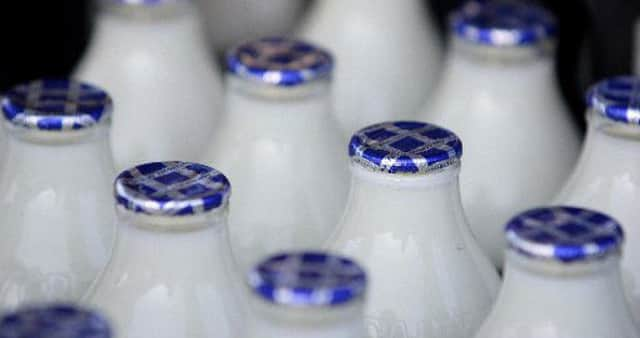Fonterra auction brings no joy for dairy sector


Hope is a fragile commodity and it does not take much to snuff it out. This is what happened at the Fonterra auction this week in New Zealand. The barometer of global dairy trade event had been expected to deliver a small price increase, which would have been the third in a row. Instead it delivered this small dip, and that was enough to make analysts rethink conclusions that the market had finally bottomed out. This was probably a bit of an over-reaction, but it confirms that we are going to bump along the bottom for a time, before we can judge the recovery to be in place.
The European Commission decision to double the volume of skim milk powder it can take into intervention should help prevent things getting worse. This needs to work, because it is clear that this is now the only show in town. Interest in the voluntary milk supply reduction programme, which could be operated by cooperatives, has gone from minimal to just about zero, mainly because it came without any funding attached. It is clear now this is not going to happen, despite the latest figures confirming that milk over-production is a problem. This has been driven by countries, led by Ireland, that had ambitious post-milk quota expansion plans, and they have pursued those with a vengeance. They have no interest in reducing supply – and since they are the source of the problem there is little point in those that are not making sacrifices.
Advertisement
Hide AdAdvertisement
Hide AdOne aspect of farm lobbying that seems to have worked this week is over the threat to the beef industry from the planned trade agreement with the Mercosur countries of South America. There have been concerns over its potential impact on the beef industry, not helped by the suggestion that the commission was poised to offer, in the first round of the negotiations, tariff free access for almost 80,000 tonnes of beef. This is despite beef being deemed a sensitive product and the fact that the key Mercosur players – Argentina, Brazil and Uruguay – represent a huge threat to the European beef industry. Now it seems common sense is likely to prevail, with reports that all sensitive products, including beef, will be taken out of the initial offer. If this is confirmed it will be down to effective lobbying by farm and beef interests, but this does not mean the threat has gone away. Tariff free access for beef could return as the negotiations continue – and the farm lobby cannot take it for granted that this risk has been eliminated.
Less successful over the years have been attempts by farmers to persuade the environmental lobby that farmers are the only effective custodians of the countryside. This is accepted here by the mainstream environmental organisations, such as the RSPB, but in Brussels there has been no meeting of minds over the years. The CAP is one of the battlegrounds, and NGOs – non government organisation pressure groups – are ramping up the pressure for changes to the policy. Over the CAP a hundred environmental and social NGOs have come together to claim the policy needs to move away from supporting farmers. They want the CAP to focus on issues such as human health, the environment, farm workers, animal welfare and help for countries outside the EU. This is clearly not going to happen, but it is a sign of the sort of pressure the Commission faces, and it is pressure it and farmers need to resist.
It is clear from their tactics that these groups are happy to seek political support to pursue the issues, without any acknowledgement that the CAP was created to improve farm incomes and bring them closer to earnings in urban areas. A lot has changed since then, but one thing that has not is the poor state of farm incomes relative to the rest of society.
This is what the CAP should be tackling, but all groups like this can see is the huge pot of money going into it. They want to secure a bigger slice of those funds, and they see the best way to do that is to alter the foundations of the CAP towards the causes they advocate, and against farming.